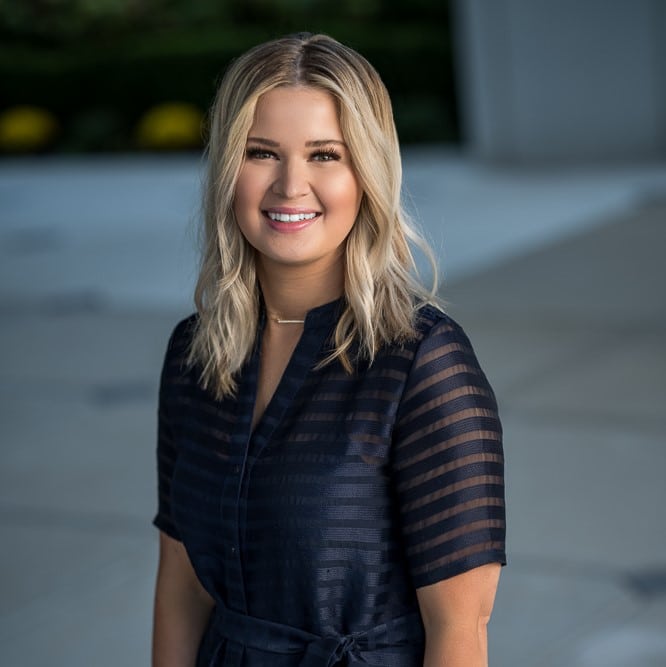A generation or two ago, women were not usually the decision makers in family finances, and may not have even been part of the conversation. Today, more women than ever are the breadwinners in our homes, and do initiate the financial talks in our families.
Even though we are carrying this financial responsibility, we are generally not as bold or confident with investing and retirement planning as our male counterparts.
It may not seem that investing and retirement planning would be any different if you’re a man or woman – the stock market behaves the same for everyone! It is our life experiences and our own approach to investing that create the differences. Women tend to approach planning with more caution and we invest less than we can or should. That is something we can easily overcome.
But it is our life experiences – which are not so much in our control – that have two very important differences from men’s experiences:
- On average, we live longer. We’re going to need our money to work harder and last longer.
- We tend to make less money. This makes investing and saving for retirement more challenging – but also makes it more important. Pensions and Social Security are based on what you earn. Investing and retirement planning are based on what you do with what you earn.
Because of these differences, women need to become better educated and more vigilant about investing and retirement planning. I find that once my female clients understand why they need to plan and invest, they are much more inspired to set and reach their financial goals.
So, I will explain why, whether you are single or married, with or without children, you need to proactively plan and invest for your future:
Planning if You Are Single
Whether you are just entering your adult life, putting off marriage, newly single, or plan to stay single, you need to look out for YOU. You do not have the benefit of a second income right now, and may not in retirement either. What you DO have is complete control over your financial decisions – how your money is spent, and how much you save and invest.
If you are young and find yourself on the low end of the pay scale, you may feel you can’t possibly save or invest, and retirement is too far off to think about. The truth is, the younger you are, the less money you’ll need to invest to reach your retirement goals. Time is your biggest asset. If you start an IRA in your 20’s with just a small amount from each paycheck, you will have far more at retirement than if you start in your 30’s or 40’s with much larger contributions per paycheck.
If you think you will remain single, regardless of your age, investing and retirement planning is crucial. You are likely to have a longer life, and it is important to make sure you have enough to live on when you’re in your 80’s or beyond.
Another very important thing to consider is who you want to inherit your estate. If you don’t have children, who do you want to leave your assets to? Many times, it’s a close family member, but it can also be your church, favorite charity or a combination of all of these.
Planning if You Are Married
If you are married, especially if you have two incomes, you may feel less of a need to focus specifically on your own investment and retirement planning, since your plans are shared and benefit each other. However, regardless of which of you makes more money, one of you will outlive the other. There is also the possibility that you and/or your spouse could need long-term care when you are elderly.
So while you may benefit from two incomes for many decades, you may also find yourself carrying the entire financial responsibility for both of you if your spouse needs care, and for yourself over the latter years of your retirement.
As a married woman, you need to educate yourself on your company’s benefit plans, and discuss your retirement and long-term care options with your spouse and a trusted independent advisor. Making solid plans now can ensure you are able to financially manage whatever may come in the future.
Planning if You Are Living with a Partner
If you are not married to your significant other, but are sharing your home and other assets, you may face the same concerns as a married woman. But because you don’t have the legal protections you would have if married, you and your partner need to be very educated on investing and retirement plans, especially in terms of setting up beneficiaries. I would strongly recommend you and your partner seek the advice of an independent advisor to ensure you plan well for retirement and for unforeseen circumstances.
Planning if You Have Children
When you have children, it is always wise to plan for their college education. That’s something both parents commonly do, but what we do not always consider or plan for is how much we help our kids financially once they are grown.
Mothers tend to want to help their kids as much as they are able to, selflessly – without thinking about how it may affect their own retirement. It is very important to be knowledgeable about your own retirement strategy and how paying for things like helping your son buy a car or giving your daughter a down payment on a home can diminish your retirement income.
The purpose of a well-advised retirement plan isn’t to prevent you from helping your kids, but to give you an awareness of the impact, so you can make informed decisions and adjust your plans to compensate.
How to Get Started on a Good Financial Plan
It’s very important to educate yourself on investing and retirement planning. Here are a few recommendations:
- Talk to an independent advisor – someone who has your best interests in mind.
- Read up on your employer retirement plan – make sure you understand how it works and that you’re maximizing those benefits.
- Talk to your spouse and make sure you’re on the same page with planning.
- Talk to friends about their plans and what is working for them.
- Read articles from financial sources such as Forbes, Yahoo Finance, CNN Money, etc.
- Ask questions about any advice or investment opportunity that seems too good to be true – it probably is.
- Ask why questions and make sure your plan makes sense for your needs.
As a woman, you have a great deal of financial responsibility and you should also have financial freedom. Plan and make sure you start early and work with someone you can trust, so you are ready to take on whatever the future brings.



















